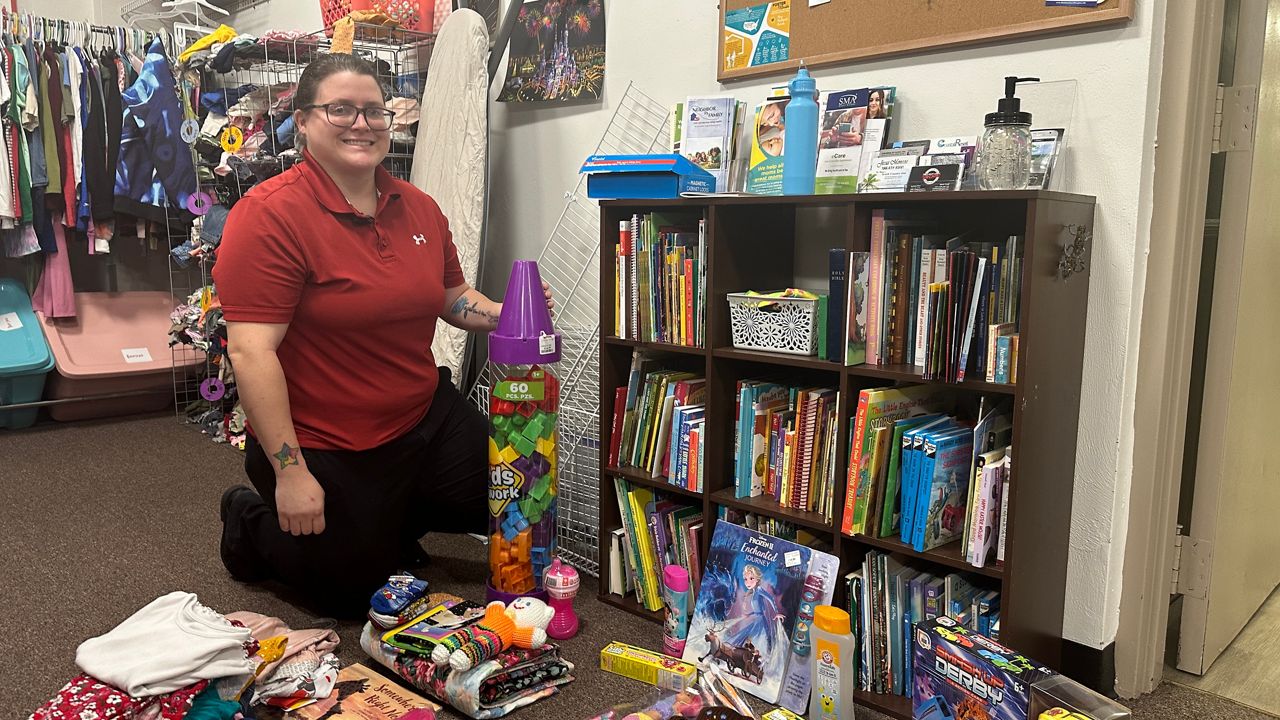DAYTONA BEACH, Fla. — A community project is working to expand access to healthy food for underserved families in Daytona Beach.
What You Need To Know
- Derbyshire Place Community garden to expand
- The goal is to end food insecurity in the area
- The garden provides underserved families with access to fruits and vegetables
It’s an effort to end so-called “food deserts,” where food like fruits and vegetables aren’t readily available.
Natasha Bland and her children Miles and Malia frequent their plot in the Derbyshire Place Community garden, planting all kinds of fruits and veggies. Monday morning, they chose Swiss Chard.
“We’ve done cucumber squash, we’ve done tomatoes, we’ve done onion,” said Bland, listing off what they've harvested so far.
The garden has come a long way since it was started back in 2019. Now, with so many people relying on its crops, Bland believes having this garden in the Derbyshire area is more important than ever.
The Derbyshire Community garden is set to expand in 2021, with the goal of ending food insecurity in the area once and for all. They are taking new approaches such as using hydroponics and starting a co-op @MyNews13 #News13Volusia pic.twitter.com/rAACPhzYPH
— Nicole Griffin (@NicoleNews13) December 28, 2020
“It is a food desert and just access to fresh fruits, we are limited, very limited in this area, as far as grocery stores go,” Bland said.
While the USDA no longer uses the term food desert, according to the Volusia County Department of Health, maps indicate Derbyshire is still considered a low income census tract where a significant number of residents have to travel more than one to 10 miles to the nearest supermarket. In fact, much of Daytona Beach falls into that category. That is a reason Miguel Rodriguez, the Executive Director of Derbyshire Place, started the garden in the first place.
“The point is to save our community money so they don’t have to make choices between food or electricity,” Rodriguez said.
With the pandemic, the need for healthy and affordable food in the area is surging. That is why they’re expanding in 2021 and using new technology run by Embry-Riddle students.
“By expanding our garden and making it a hydroponics farm, we will be able to do what is called a co-op where families can buy in for a low price per month and automatically get a harvest of whatever is available so that means they’ll still be getting access to fresh fruits and vegetables as well as saving them hundreds off their grocery bill,” said Rodriguez.
Rodriquez is hopeful that the expansion and their new farmer’s market will help them serve those that can’t spare the time to come garden themselves and to those that don't have the means.
“It also allows us to give away more fresh fruits and vegetables to the local homeless shelter to the senior citizens home which we do now and it will enlarge that,” Rodriguez said.
He says that healthier food is showing positive results, with garden visitors reporting lowered blood pressure and weight loss. That is something he wants to see benefit more people.
“I hope that it won’t take several years, that we can start making a difference right now,” Rodriguez said.
Rodriguez said they are partnering with the Department of Health on this endeavor so they can determine what the community needs most from the garden and so they can track what kind of difference it really makes.






